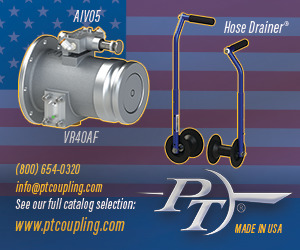- Unveiling Fraud in Trucking Compliance: Discover how a New York trucking magnate’s elaborate scheme to deceive FMCSA was uncovered, shaking the foundations of trucking safety regulations.
- The Cost of Deception: Dive into the consequences of the Tony Kirik conviction after his federal trial for falsifying safety audits—what does this mean for the trucking industry?
- From Compliance to Conviction: Explore the strategies that led a once-reputable trucking company owner from industry acclaim to criminal charges.
Misleading the FMCSA, Kirik crafted a web of deceit to manipulate trucking safety audits.
In a landmark decision, Tony Kirik, a former New York trucking company owner, has been convicted by a federal jury for making false statements to the Federal Motor Carrier Safety Administration (FMCSA), unraveling a complex web of deception aimed at manipulating trucking safety regulations. For more details on how FMCSA regulates trucking safety, check out this page.
Tony Kirik, formerly revered in the trucking industry, now stands as a stark example of regulatory malfeasance. Operating Dallas Logistics in Rochester, Kirik crafted an intricate scheme to mislead FMCSA officials during essential compliance reviews and safety audits, which has significant implications for trucking safety and regulatory adherence. Discover other significant fraud cases within the trucking industry, explore this page.
Understanding the Tony Kirik Conviction
The Deceptive Practices Unveiled
Creation of Shell Companies
Kirik’s fraudulent activities involved creating fictitious companies under family members’ names to evade negative safety evaluations associated with his primary business. This was a calculated attempt to obscure his ongoing management of these entities and to falsely enhance the safety profile of his businesses.
Misrepresentations to FMCSA

Creating shell companies, Kirik evaded safety evaluations crucial to public trust and regulatory compliance.
Enjoying our insights?
Subscribe to our newsletter to keep up with the latest industry trends and developments.
Stay InformedIn his dealings with the FMCSA, Kirik provided fraudulent documentation that misrepresented the operational bases and ownership of his companies. Specifically, he listed Dallas Logistics as being based in Dallas, Texas, with a fictitious owner, to dissociate it from his negatively rated previous enterprise, Orange Transportation Services. This deliberate misinformation was designed to secure a more favorable safety rating from the FMCSA, directly impacting his companies’ insurance premiums and customer trust.
Further, the investigation led by Department of Transportation agent Jason Fernandes uncovered that the documents submitted claimed Dallas Logistics operated out of Dallas, Texas — a deliberate falsehood as the company was actually based in Rochester, NY. This lie was compounded by fictitious narratives about the owner’s family health issues preventing relocation, which were crafted to support the false claim of the company’s location.
“This case highlights the critical need for transparency and honesty in the compliance processes of the trucking industry. It serves as a cautionary tale for other operators about the severe implications of regulatory non-compliance.”
Legal Repercussions and Industry Impact
Sentencing and Penalties

The false documentation aimed to disguise the true operational base, impacting the company’s safety ratings and trust.
Scheduled for sentencing on October 28, 2024, Kirik faces severe legal consequences, including up to five years in prison and a fine of $250,000. This case, presided over by U.S. District Judge Charles J. Siragusa, underscores the serious penalties for fraudulent activities within the trucking industry. For more on legal precedents set by trucking regulation cases, visit this link.
Wider Industry Implications
The fallout from this case has prompted calls for more stringent regulatory oversight within the trucking sector. The FMCSA and other regulatory bodies are likely to tighten scrutiny of company registrations and operational disclosures, aiming to clamp down on similar fraudulent practices in the future. To dive deeper into transportation safety issues and standards, follow this link.
Key Takeaways from the Kirik Case

Severe penalties underscore the critical importance of transparency within the trucking industry. The case prompts a push for stricter regulatory oversight to prevent future deceptive practices in the trucking sector.
This case emphasizes the importance of rigorous regulatory enforcement and the consequences of circumventing legal standards.
Future Directions in Trucking Compliance
Moving forward, this conviction may lead to enhanced regulatory frameworks and more rigorous enforcement measures, ensuring that safety and compliance are prioritized across the industry. Stay updated on the latest trends shaping the trucking industry, click here.
Major Outcomes of the Tony Kirik Case
- Federal Conviction: Tony Kirik was convicted by a federal jury on multiple counts, including fraud and making false statements to the FMCSA, setting a precedent for regulatory enforcement.
- Legal Repercussions: Scheduled for sentencing in October 2024, Kirik faces up to five years in prison and substantial financial penalties.
- Implications for the Industry: This high-profile case may trigger tighter regulatory scrutiny and reform within the trucking sector to prevent similar fraudulent practices.
5 Shocking Insights into Trucking Compliance Fraud:
- Widespread Impact on Industry Standards: The conviction highlights how compliance fraud can deeply undermine the regulatory frameworks designed to ensure safety and fairness.
- Sophisticated Evasion Tactics: The use of shell companies and falsified documents in this case reveals the lengths to which some operators will go to skirt regulations.
- Regulatory Gaps and Oversight Challenges: The ease with which Kirik manipulated compliance mechanisms suggests a need for stronger oversight and advanced monitoring technologies.
- Economic Incentives for Fraud: The economic benefits gained from a better safety rating through fraud underline the need for a balanced approach to penalties and compliance incentives.
- Legal and Financial Repercussions: The severe penalties facing Kirik serve as a deterrent, emphasizing the serious consequences of violating federal transportation laws.
Scheduled for severe legal consequences, the case marks a significant judicial stance on regulatory fraud. Enhanced regulatory frameworks may emerge from this conviction, aiming to bolster safety and compliance.
Further Reading on the Tony Kirik Case and FMCSA Fraud Investigations
- IRS Announcement of Conviction: The Internal Revenue Service provides a formal announcement regarding the conviction of Tony Kirik for making false statements to the FMCSA and conspiring to commit fraud. This resource is authoritative and directly related to the legal proceedings.
- Detailed News Coverage: WNY News Now offers a comprehensive report on the case, detailing the investigation led by the Department of Transportation and the IRS, and includes information about the sentencing scheduled for October 28, 2024.
- The Trucker News: Provides insights into Kirik’s fraudulent activities, including the creation of shell companies and the manipulation of safety audits to deceive the FMCSA.
- FreightWaves Report: Offers an analysis of the implications of Kirik’s fraudulent actions for the trucking industry and the regulatory measures that may follow the conviction.
These resources will give you a thorough understanding of the Kirik case from various authoritative perspectives, providing details on the legal proceedings, the fraudulent activities involved, and the broader implications for the trucking industry.





















